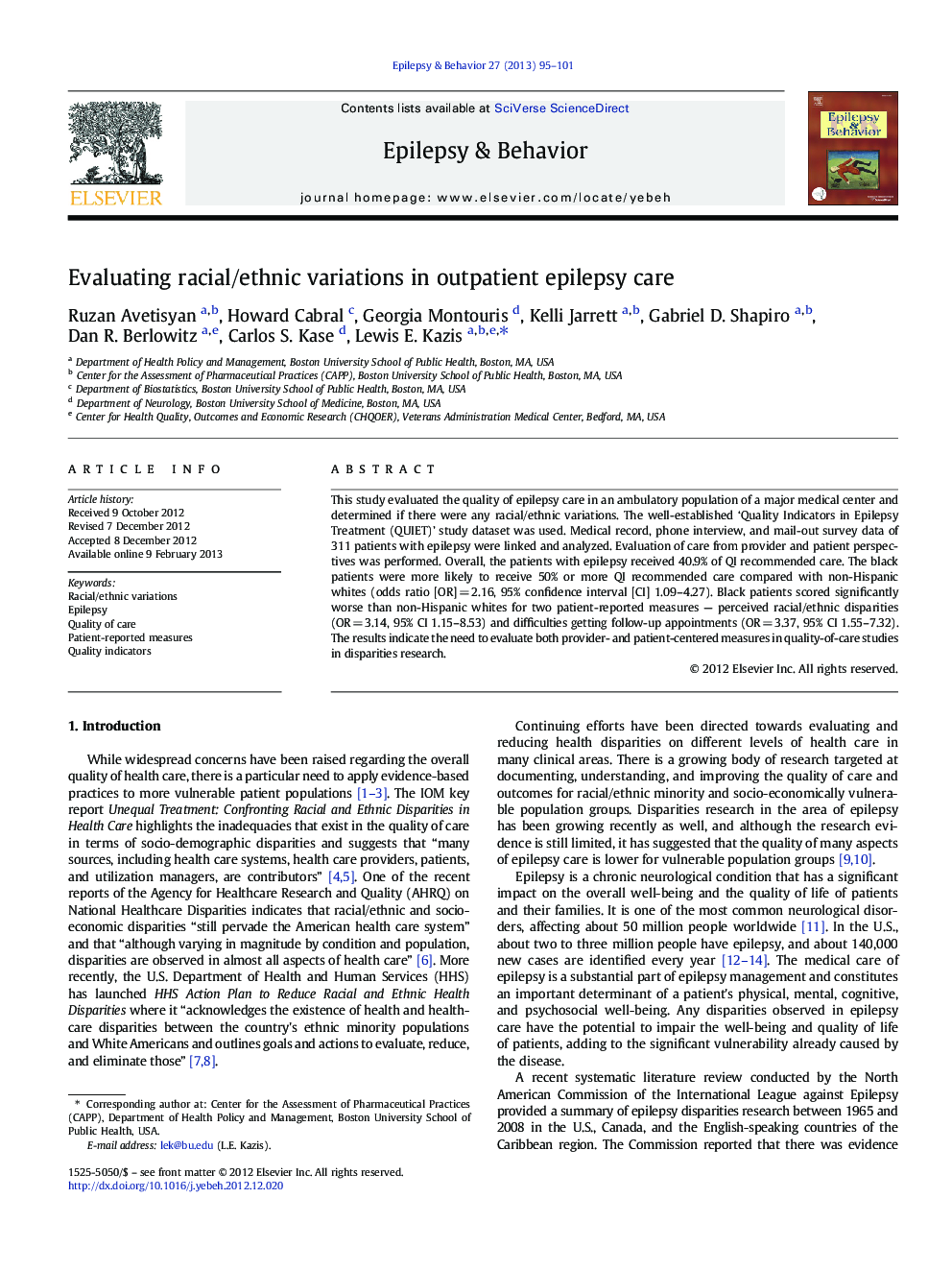| Article ID | Journal | Published Year | Pages | File Type |
|---|---|---|---|---|
| 6013184 | Epilepsy & Behavior | 2013 | 7 Pages |
This study evaluated the quality of epilepsy care in an ambulatory population of a major medical center and determined if there were any racial/ethnic variations. The well-established 'Quality Indicators in Epilepsy Treatment (QUIET)' study dataset was used. Medical record, phone interview, and mail-out survey data of 311 patients with epilepsy were linked and analyzed. Evaluation of care from provider and patient perspectives was performed. Overall, the patients with epilepsy received 40.9% of QI recommended care. The black patients were more likely to receive 50% or more QI recommended care compared with non-Hispanic whites (odds ratio [OR]Â =Â 2.16, 95% confidence interval [CI] 1.09-4.27). Black patients scored significantly worse than non-Hispanic whites for two patient-reported measures - perceived racial/ethnic disparities (ORÂ =Â 3.14, 95% CI 1.15-8.53) and difficulties getting follow-up appointments (ORÂ =Â 3.37, 95% CI 1.55-7.32). The results indicate the need to evaluate both provider- and patient-centered measures in quality-of-care studies in disparities research.
⺠We evaluated the quality of epilepsy care for possible racial/ethnic variations. ⺠We used validated quality indicators (QIs) and patient reports. ⺠Overall, patients with epilepsy received 40.9% of QI recommended care. ⺠Black patients more likely received QI recommended care than non-Hispanic whites. ⺠Findings highlight importance of patient-centric approach in disparities research.
